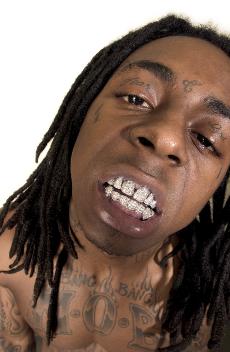Rap’s negative images lead to heavy criticism

Mar 1, 2007
NEW YORK – Maybe it was the umpteenth coke-dealing anthem or soft-porn music video. Perhaps it was the preening antics that some call reminiscent of Stepin Fetchit.
The turning point is hard to pinpoint. But after 30 years of growing popularity, rap music is now struggling with an alarming sales decline and growing criticism from within about the culture’s negative effect on society.
Rap insider Chuck Creekmur, who runs the leading Web site Allhiphop.com, says he got a message from a friend recently “asking me to hook her up with some Red Hot Chili Peppers because she said she’s through with rap. A lot of people are sick of rap … the negativity is just over the top now.”
The rapper Nas, considered one of the greats, challenged the condition of the art form when he titled his latest album “Hip-Hop is Dead.” It’s at least ailing, according to recent statistics: Though music sales are down overall, rap sales slid a whopping 21 percent from 2005 to 2006, and for the first time in 12 years no rap album was among the top-10 sellers of the year. A recent study by the Black Youth Project showed a majority of youth think rap has too many violent images. In a poll of black Americans by The Associated Press and AOL-Black Voices last year, 50 percent of respondents said hip-hop was a negative force in American society.
Nicole Duncan-Smith grew up on rap, worked in the rap industry for years and is married to a hip-hop producer. She still listens to rap, but says it no longer speaks to or for her. She wrote the children’s book “I Am Hip-Hop” partly to create something positive about rap for young children, including her 4-year-old daughter.
Get The Daily Illini in your inbox!
“I’m not removed from it, but I can’t really tell the difference between Young Jeezy and Yung Joc. It’s the same dumb stuff to me,” says Duncan-Smith, 33. “I can’t listen to that nonsense. … I can’t listen to another black man talk about you don’t come to the ‘hood anymore and ghetto revivals. … I’m from the ‘hood. How can you tell me you want to revive it? How about you want to change it? Rejuvenate it?”
Hip-hop also seems to be increasingly blamed for a variety of social ills. Studies have attempted to link it to everything from teen drug use to increased sexual activity among young girls.
Even the mayhem that broke out in Las Vegas during last week’s NBA All-Star Game was blamed on hip-hoppers. “(NBA Commissioner) David Stern seriously needs to consider moving the event out of the country for the next couple of years in hopes that young, hip-hop hoodlums would find another event to terrorize,” columnist Jason Whitlock, who is black, wrote on AOL.
While rap has been in essence pop music for years, and most rap consumers are white, some worry that the black community is suffering from hip-hop – from the way America perceives blacks to the attitudes and images being adopted by black youth.
But the rapper David Banner derides the growing criticism as blacks joining America’s attack on young black men who are only reflecting the crushing problems within their communities. Besides, he says, that’s the kind of music America wants to hear.
“Look at the music that gets us popular – ‘Like a Pimp,’ ‘Dope Boy Fresh,'” he says, naming two of his hits.
“What makes it so difficult is to know that we need to be doing other things. But the truth is at least us talking about what we’re talking about, we can bring certain things to the light,” he says.





